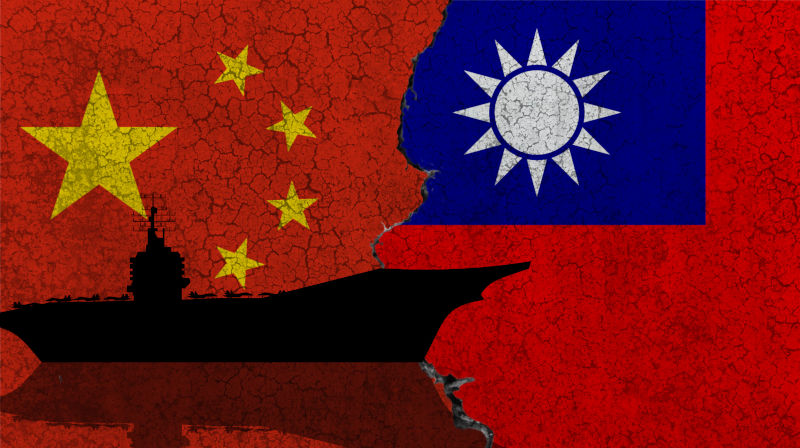The Western fantasy of a Taiwanese proxy war against China

The Western hope that Taiwan could serve as a catalyst for an attack of China seems likely to remain the fantasy it always was.
I first knew Taiwan in the sixties – dirt poor and brutally oppressive. A well-known lawyer, Duan-Mu Kai, I came to know spent his time rescuing from execution people falsely accused of pro-communist sympathies.
Disagreement with the economic policies of ultimate leader, KMT boss Chiang Kai-shek, and his cabal, was also grounds for punishment.
I also saw official Taiwan in the early sixties accompanying the Education Minister, John Gorton, on an official visit. Seated next to Chiang facing the Taiwan Strait he was told how soldiers being parachuted with heavy packs into the sea before us were preparing for the inevitable invasion of the mainland.
Chiang had nothing to say about the corruption and cruelty that had forced his government to flee to Taiwan in 1949.
The KMT suppression in Taiwan began in 1947 with the killing at least 18,000 Taiwanese civilians to suppress a popular uprising against misrule. It was followed by the White Terror after 1949 which saw some 3-4 thousand local political and intellectual elites summarily executed for alleged leftwing thinking.
Martial Law continued though to the mid-eighties.
Returning to Taiwan after a gap of many years the place was un-recognisable. Prosperity has lifted the masses close to Hong Kong standards. Nowhere does one find the slogans and oppressive police rule of the past.
Taiwan is supposed to be under threat from Chinese communist invasion. Yet in trips that took me from north to south and back the length of the island on Taiwan’s very efficient copies of Japan’s bullet train system I did not see a single uniformed soldier.
The vast vault protecting the remains and history of former leader Chiang in central Taipei was firmly closed. ‘No longer interested in Chiang thought’ I was told.
The Taiwan military, and the large US military backup, which are supposed to defend Taiwan from Mainland China attack are both kept well out of sight.
Contrast this with the contacts with Mainland China.
Many of the talk and dance shows shown on my hotel TV were from Mango productions based in Hunan, the site of China’s original Communist revolution.
Sub-titles were unashamedly in the simplified Chinese mainland characters once condemned in Taiwan as a communist subversion of traditional Chinese culture.
The other side of the culture coin was a 100 percent modern Japanese-style Mitsui outlet store filled with families and buyers just outside the Tainan bullet train station in central Taiwan.
As in China high-rise residential pushes against town outskirts and surrounding rice paddies, though there are few signs of the over-building that plagues China mainland.
A very efficient subway network system which would put even the Tokyo and mainland China systems to shame has allowed this suburban expansion.
For meticulous cleanliness Taiwan rivals Japan.
Mandarin Chinese, imposed on the education system by Chiang Kai-shek as the language he would use on his return to China, has taken root and doubtless will serve Beijing well if and when it makes its return to the island.
Already it had been encouraging an impressive one million a year tourist inflow from China before the pandemic and anti-China politicians took control; Taiwan still sees tourism as a major basis for its future economy.
Even with the clampdown on China contacts by the current regime, over one million Taiwanese workers and several thousand Taiwanese students still decide to go and work or study in China.
Together with residents of Hong Kong and Macao special entry procedures facilitate return of so-called Overseas Chinese to China.
The possible return of KMT governments in Taiwan (the KMT has finally decided friendship beats enmity as a better way to get back to China) would see lifting of current bans on closer relations.
But either way, the Western (and Australian) hope that Taiwan could serve as a catalyst for an attack of China seems likely to remain the fantasy it always was. Even a declaration of independence would be seen as more of a joke than a readiness for war.
Taiwan dependence on the Mainland is too close easily to be broken.